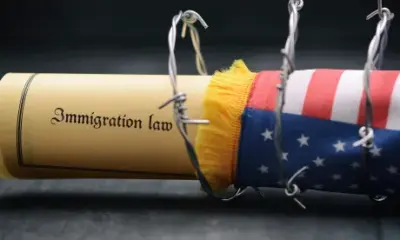Science
Examining the Effectiveness of Conviction Integrity Units

The impact of conviction integrity units (CIUs) on wrongful convictions within the American judicial system is under scrutiny. This initiative aims to rectify past injustices by reviewing cases where individuals may have been wrongfully convicted. The first installment of “Exploring Integrity: Reviewing Wrongful Conviction Remedies,” presented by the O’Brien Fellowship in Public Service Journalism and supported by Marquette University in Milwaukee, Wisconsin, delves into the effectiveness of these units.
CIUs have emerged as a response to the growing awareness of wrongful convictions in the United States. They typically involve a dedicated team of legal professionals reviewing cases brought forth by convicted individuals. By examining evidence, witness testimony, and procedural fairness, these units seek to identify and rectify miscarriages of justice. This series aims to provide insights into whether CIUs are fulfilling their intended purpose.
The need for such units has been underscored by the alarming number of wrongful convictions, with research indicating that thousands of individuals in the U.S. may be innocent. A report from the National Registry of Exonerations found that over 3,000 individuals have been exonerated since 1989, highlighting systemic issues within the judicial process. These findings raise critical questions about the reliability of conviction processes and the potential for reform.
Advocates argue that CIUs offer a necessary mechanism for justice, allowing individuals to present their cases in a more accessible manner. They contend that the existence of these units can deter wrongful convictions by fostering greater accountability within the judicial system. However, critics express concerns about the effectiveness and transparency of these units. Some argue that the review processes can be slow, and the units may not have adequate resources or authority to make substantive changes.
The series aims to gather data and testimonies from various stakeholders, including former inmates, legal experts, and advocacy groups. By exploring personal stories, the investigation will illustrate the human impact of wrongful convictions and the potential role of CIUs in addressing these issues.
In addition to individual cases, the series will consider the broader implications of CIUs for public trust in the justice system. The concept of justice is inherently tied to public perception, and any failures within the system can lead to disillusionment among citizens. Understanding how CIUs operate and their effectiveness is crucial for restoring faith in the judicial process.
As this investigation unfolds, it will provide a comprehensive overview of the successes and challenges faced by conviction integrity units. It aims to shed light on whether these units are effective in reducing wrongful convictions and promoting justice for those wronged by the system. The findings will ultimately contribute to the ongoing dialogue about reforming the American judicial system and ensuring a more equitable approach to justice.
This series is essential reading for anyone concerned about the integrity of the legal system and the pursuit of justice in the United States. It highlights the complexities surrounding wrongful convictions and the critical role that initiatives like CIUs can play in shaping a more just society.
-

 Science2 weeks ago
Science2 weeks agoNostradamus’ 2026 Predictions: Star Death and Dark Events Loom
-

 Technology1 month ago
Technology1 month agoOpenAI to Implement Age Verification for ChatGPT by December 2025
-

 Technology6 months ago
Technology6 months agoDiscover the Top 10 Calorie Counting Apps of 2025
-

 Health4 months ago
Health4 months agoBella Hadid Shares Health Update After Treatment for Lyme Disease
-

 Health4 months ago
Health4 months agoAnalysts Project Stronger Growth for Apple’s iPhone 17 Lineup
-

 Health4 months ago
Health4 months agoErin Bates Shares Recovery Update Following Sepsis Complications
-

 Technology4 months ago
Technology4 months agoElectric Moto Influencer Surronster Arrested in Tijuana
-

 Technology5 months ago
Technology5 months agoDiscover How to Reverse Image Search Using ChatGPT Effortlessly
-

 Technology6 months ago
Technology6 months agoMeta Initiates $60B AI Data Center Expansion, Starting in Ohio
-

 Technology6 months ago
Technology6 months agoRecovering a Suspended TikTok Account: A Step-by-Step Guide
-

 Education4 months ago
Education4 months agoHarvard Secures Court Victory Over Federal Funding Cuts
-

 Technology2 months ago
Technology2 months agoDiscover 2025’s Top GPUs for Exceptional 4K Gaming Performance




















